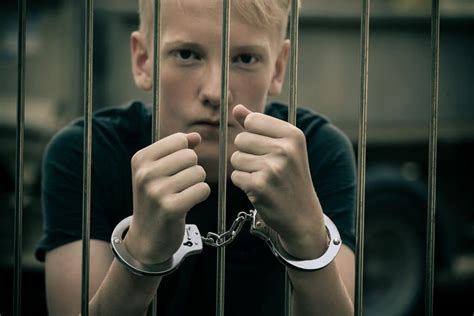Juvenile Assault & Jail Time: A Parent's Guide
The prospect of your child facing juvenile assault charges is terrifying. Understanding the legal ramifications and potential consequences is crucial for navigating this difficult situation. This guide provides essential information for parents grappling with such a crisis, offering clarity and support during a challenging time. Remember, seeking legal counsel is paramount – this information is for educational purposes and should not substitute professional legal advice.
What Constitutes Juvenile Assault?
Juvenile assault, like adult assault, involves unlawful physical harm or the threat of harm to another person. The specifics vary by state and jurisdiction, but generally include:
- Simple Assault: This often involves physical contact without causing serious injury, like pushing or shoving.
- Aggravated Assault: This involves more serious harm, potentially including the use of a weapon, resulting in significant injuries.
- Assault with a Deadly Weapon: This carries the most severe penalties and involves using a weapon (even an improvised one) to cause harm or threaten harm.
The severity of the charges hinges on factors like the victim's injuries, the weapon used (if any), and the child's intent. Even seemingly minor incidents can lead to serious legal repercussions.
Can a Juvenile Go to Jail for Assault?
While the term "jail" typically refers to adult incarceration, juveniles facing assault charges can be detained in various facilities depending on the severity of the offense and their age:
- Detention Centers: These secure facilities house juveniles awaiting court proceedings or serving short-term sentences.
- Youth Correctional Facilities: For more serious offenses, juveniles may be sent to these longer-term facilities.
- Community-Based Programs: Depending on the circumstances and the judge's discretion, alternatives like probation, community service, or rehabilitation programs may be ordered instead of detention.
The possibility of jail time significantly increases with the severity of the assault, prior offenses, and the child's behavior during the legal process.
What Happens After an Assault Charge?
The process typically involves several stages:
- Arrest and Detention: Law enforcement will investigate the incident and possibly detain the juvenile.
- Initial Court Appearance: The juvenile will be brought before a judge, who will determine bail (if applicable) and schedule further hearings.
- Plea Bargaining: The prosecution and defense may negotiate a plea agreement to avoid a trial. This could involve admitting guilt in exchange for a less severe sentence.
- Trial (if Plea Bargaining Fails): If a plea agreement isn't reached, the case will proceed to trial, where evidence will be presented and a judge or jury will determine guilt or innocence.
- Sentencing: If found guilty, the judge will impose a sentence, which can include detention, probation, community service, restitution to the victim, counseling, or a combination of these.
What Can Parents Do to Help?
Your role as a parent is crucial:
- Seek Legal Counsel Immediately: A qualified attorney specializing in juvenile law can guide you through the legal process, protecting your child's rights.
- Cooperate with Authorities: While advocating for your child, cooperate with investigations and court proceedings. Obstructing justice can exacerbate the situation.
- Support Your Child: Offer emotional support and understanding. This is a stressful time, and your child needs your unwavering presence.
- Attend Court Hearings: Your presence demonstrates your commitment to the process and your child's well-being.
- Explore Rehabilitation Options: If appropriate, consider counseling, therapy, anger management programs, or other rehabilitation options to address underlying behavioral issues.
What are the Long-Term Effects of a Juvenile Assault Conviction?
A juvenile assault conviction can have significant long-term consequences, impacting:
- Future Employment: Employers often conduct background checks, and a criminal record can hinder employment prospects.
- Educational Opportunities: Colleges and universities may consider a juvenile record during admissions.
- Travel: Depending on the severity of the offense and the country, travel restrictions may apply.
Understanding these potential long-term consequences emphasizes the importance of addressing the underlying issues and ensuring your child receives appropriate support and guidance.
How Can I Prevent Future Incidents?
Preventing future incidents requires a proactive approach:
- Open Communication: Maintain open communication with your child about appropriate behavior, conflict resolution, and the consequences of violent actions.
- Anger Management Techniques: Teach your child healthy ways to manage anger and frustration.
- Parenting Support: Seek professional parenting support if needed to address any underlying family dynamics that may be contributing to behavioral problems.
- Early Intervention: Address any behavioral issues early on before they escalate into more serious problems.
Navigating juvenile assault charges is incredibly challenging. Remember, seeking professional legal help and focusing on your child's rehabilitation are crucial steps toward a more positive future. This guide offers general information; consult with legal professionals for advice tailored to your specific circumstances.

